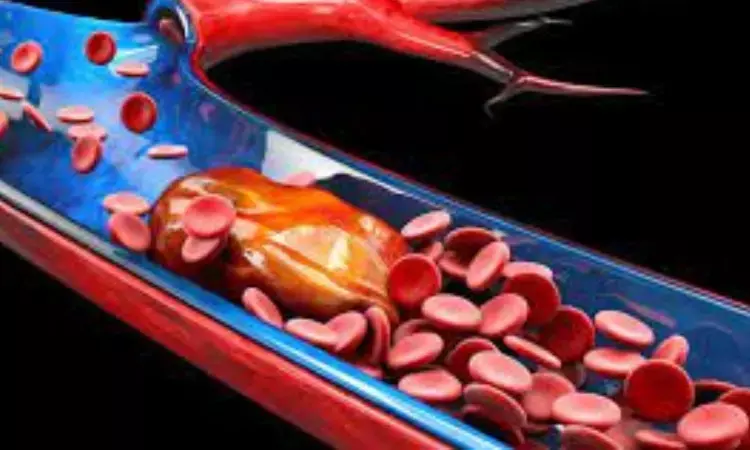- Home
- Medical news & Guidelines
- Anesthesiology
- Cardiology and CTVS
- Critical Care
- Dentistry
- Dermatology
- Diabetes and Endocrinology
- ENT
- Gastroenterology
- Medicine
- Nephrology
- Neurology
- Obstretics-Gynaecology
- Oncology
- Ophthalmology
- Orthopaedics
- Pediatrics-Neonatology
- Psychiatry
- Pulmonology
- Radiology
- Surgery
- Urology
- Laboratory Medicine
- Diet
- Nursing
- Paramedical
- Physiotherapy
- Health news
- Fact Check
- Bone Health Fact Check
- Brain Health Fact Check
- Cancer Related Fact Check
- Child Care Fact Check
- Dental and oral health fact check
- Diabetes and metabolic health fact check
- Diet and Nutrition Fact Check
- Eye and ENT Care Fact Check
- Fitness fact check
- Gut health fact check
- Heart health fact check
- Kidney health fact check
- Medical education fact check
- Men's health fact check
- Respiratory fact check
- Skin and hair care fact check
- Vaccine and Immunization fact check
- Women's health fact check
- AYUSH
- State News
- Andaman and Nicobar Islands
- Andhra Pradesh
- Arunachal Pradesh
- Assam
- Bihar
- Chandigarh
- Chattisgarh
- Dadra and Nagar Haveli
- Daman and Diu
- Delhi
- Goa
- Gujarat
- Haryana
- Himachal Pradesh
- Jammu & Kashmir
- Jharkhand
- Karnataka
- Kerala
- Ladakh
- Lakshadweep
- Madhya Pradesh
- Maharashtra
- Manipur
- Meghalaya
- Mizoram
- Nagaland
- Odisha
- Puducherry
- Punjab
- Rajasthan
- Sikkim
- Tamil Nadu
- Telangana
- Tripura
- Uttar Pradesh
- Uttrakhand
- West Bengal
- Medical Education
- Industry
Mechanical thrombectomy effective treatment option for stroke in elderly also

Delhi: Studies have shown mechanical thrombectomy to be an effective tool for stroke management even in patients above 80 years of age.
Mechanical thrombectomy is a minimally invasive surgery in which the surgeon uses special equipment to remove the clot and restore the blood supply to the brain. The procedure is performed under imaging guidance.
Speaking on the treatment of Stroke, Dr. Gaurav Goel, Director & Head - Neuro Interventional Surgery, Institute of Neurosciences, Medanta, Gurugram, said, "Treatment of stroke often depends on the size of the clot blocking the blood supply and time frame. For small clots, a clot-dissolving drug is given which is only effective if provided within initial 3 to 4.5 hours. Mechanical thrombectomy has become a treatment of choice for large clots and provides a wider treatment window. Patients treated with mechanical thrombectomy in the initial 24 hours from the beginning of stroke symptoms have shown promising outcomes. Mechanical thrombectomy can be used for any age group and studies have shown promising results even in patients above 80 years old."
"The mechanical thrombectomy provides a larger treatment window compared to medical treatment and has better outcomes in terms of functional independence, health-related quality of life, and cognitive function.", added Dr. Goel.
Stroke is a medical condition in which blood supply to the brain is affected depriving the brain of oxygen and nutrients. In the absence of oxygen and nutrients, brain cells start dying within minutes, making it an emergency condition. Delay in treatment often leads to irreversible brain damage and even death in some cases.
Symptoms may not be consistent and the simplest way of identifying stroke is to ask the person to smile, repeat some phrases and raise both arms. If the person is not able to do anything correctly, seek medical attention.
Dr. Gaurav Goel says, "Every year few lakh people lose their lives to Stroke. It is the fourth leading cause of death and the fifth leading cause of disability in India. As per multiple studies. In India, stroke affects around 1.8 million people annually. Obesity, physical inactivity, excessive drinking, use of illegal drugs, and smoking are common lifestyle risk factors for stroke. Additionally, people with medical conditions such as hypertension, high cholesterol, diabetes, heart failure, abnormal heart rhythm are at a higher risk. Some other risk factors include a family history of stroke, age, use of birth control pills or hormone therapy with estrogen."
"Early signs of a stroke include trouble speaking, numbness of the face, arms, and legs, inability to understand a conversation, headache, vision loss of one or both eyes, and walking difficulty. Stroke is a medical emergency; therefore, it is of utmost importance to take the patient to the hospital as soon as stroke signs are observed for better outcomes," added Dr. Goel.
Dr Kamal Kant Kohli-MBBS, DTCD- a chest specialist with more than 30 years of practice and a flair for writing clinical articles, Dr Kamal Kant Kohli joined Medical Dialogues as a Chief Editor of Medical News. Besides writing articles, as an editor, he proofreads and verifies all the medical content published on Medical Dialogues including those coming from journals, studies,medical conferences,guidelines etc. Email: drkohli@medicaldialogues.in. Contact no. 011-43720751


